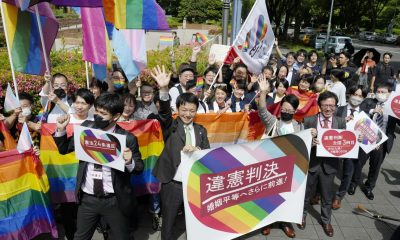World
Out in the World: LGBTQ news from Europe and Asia
Lesbian Serbian Prime Minister Ana Brnabić has stepped down

LITHUANIA
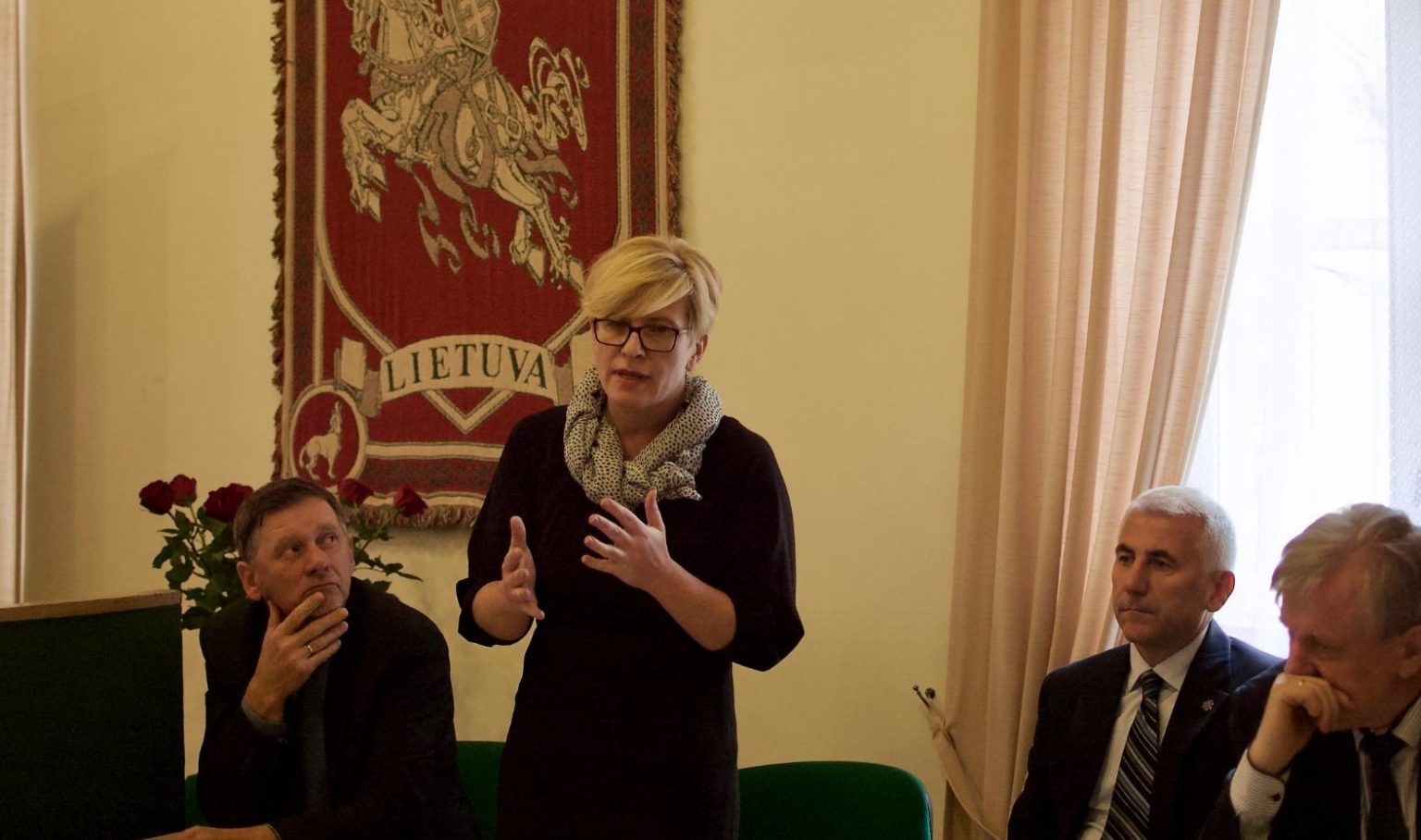
A group of same-sex couples is taking the Lithuanian government to the European Court of Human Rights, seeking access to civil unions, marriage and parental rights.
The couples involved in the suit are seeking registration of civil partnerships and recognition of same-sex marriages contracted in foreign countries. In a separate case, a same-sex couple is seeking equal parenting rights for their child. The petitioners will also be asking the Lithuanian Constitutional Court to clarify the definition of marriage in the constitution.
Lithuania does not recognize any form of same-sex relationship. A bill to legalize civil unions was proposed by the governing coalition and is one vote from passing through Parliament, but has been put on hold amid fears that it doesn’t have enough support to pass.
“The year-long litigation marathon clearly shows the reasons why trust in courts is so low in Lithuania. International law does not work in Lithuania,” Martynas Norbutas, one of the petitioners, said at a press conference.
The European Court of Human Rights is a supranational court for all members of the Council of Europe, which tries cases involving the European Convention on Human Rights. While the court has found that the convention does not require states to allow same-sex marriage, it has in the past found that same-sex couples must be grants some alternative status that is equivalent to marriage. However, it is up to individual states to implement the court’s rulings, as it has no enforcement mechanism.
Of the Council of Europe’s 46 members, 21 allow same-sex marriage, 10 allow same-sex civil unions and 15 currently have no recognition of same-sex unions.
In February, Prime Minister Ingrida Šimonytė said she was disappointed that members of her coalition had gone back on their word by failing to support the civil union law.
“I know very well that I cannot convince some of my colleagues despite the fact that the absolute majority of our factions vote for that law,” Šimonytė said on the local news program Laisvės TV.
It isn’t the first time Lithuania’s unruly coalition has failed to pass an LGBTQ rights law. Last year, the government tried to repeal an old “LGBT propaganda” law that the European Court ruled violated the convention’s right to freedom of expression, but the bill was voted down in parliament. A separate bill that would have seen Lithuania join the Council of Europe’s Istanbul Convention on Domestic Violence was also voted down after anti-LGBTQ activists began a campaign linking the convention to “gender ideology.”
Parties on both sides of the issue are attempting to shore up support ahead of parliamentary elections expected in October.
In neighboring Poland, the newly elected government says it is still planning to introduce same-sex civil unions, although it will miss its self-imposed deadline of doing so within its first 100 days. Equalities Minister Katarzyna Kotula told OKO.press that the government is still working with its coalition partners to come to agreement on what civil unions will entail, with the government preferring that same-sex couples get all the rights that come with marriage, including adoption and parenting rights.
GEORGIA
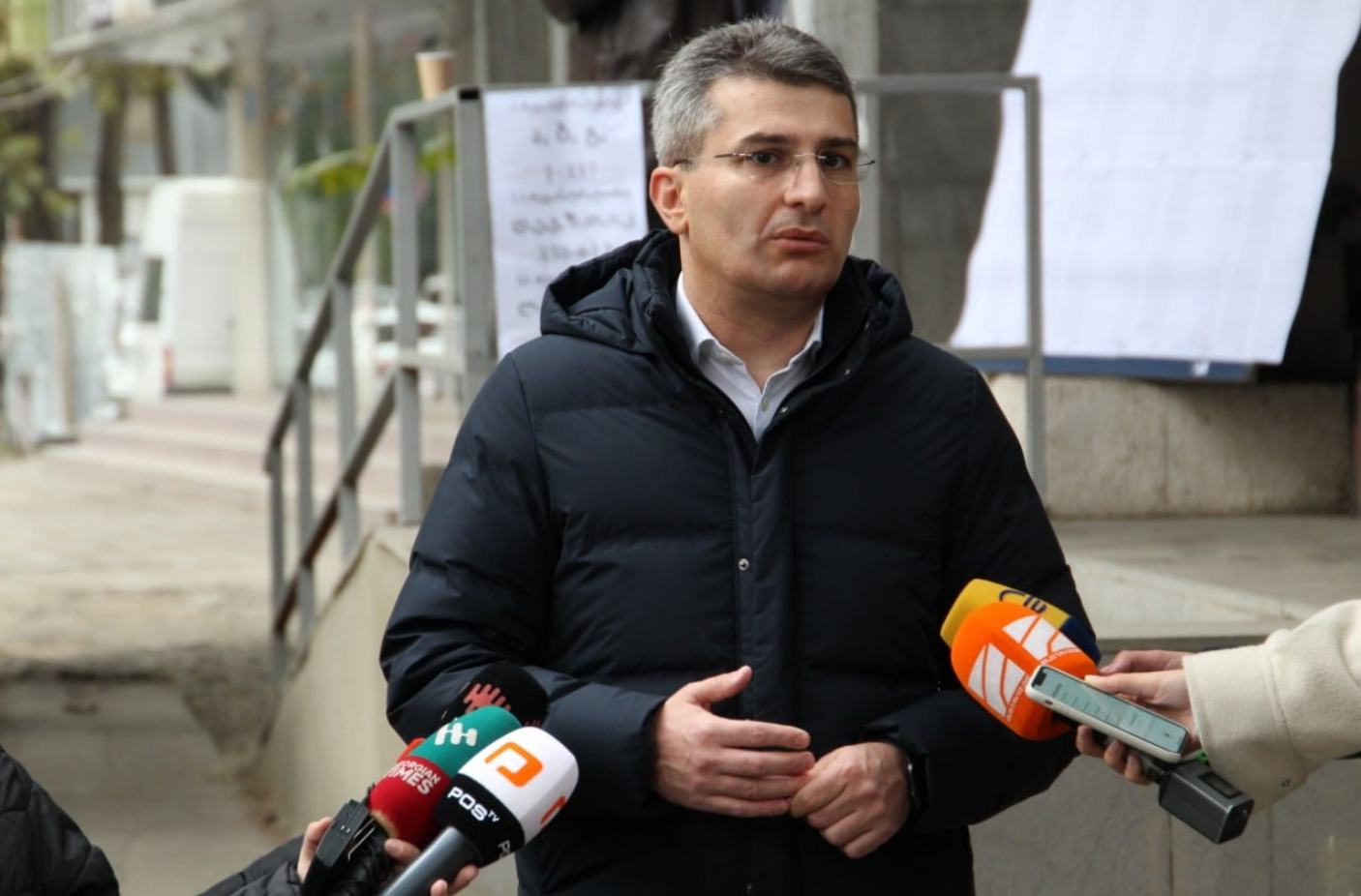
The government of the former Soviet republic of Georgia has announced plans to introduce a series of laws and constitutional amendments to limit so-called “LGBT propaganda,” ban gender change and ban adoption by LGBTQ people.
Georgia’s Parliament amended the constitution in 2017 to ban same-sex marriage. This proposal would add a new special constitutional law for the protection of family values and minors.
Under the new constitutional law, the state would be forbidden from recognizing any relationship other than heterosexual relationships, restrict adoption to married heterosexual couples and heterosexual individuals, ban any medical treatment to change a person’s gender and require that the government only recognize gender based on a person’s genetic information and ban any expression or organization promoting same-sex relationships or gender change.
Mamuka Mdinaradze, the executive secretary of the governing Georgian Dream party, says the goal of the constitutional amendments is to “protect society from pseudo-liberal ideology and its inevitable harmful consequences.”
Mdinaradze says the reforms will allow the government to block attempts by courts or international bodies to force the government to recognize same-sex marriage or civil unions.
While the Georgian government has been pursuing an alignment with the West and membership in the European Union, its government has recently taken many regressive steps on human rights and rule of law.
Last year, it introduced a “foreign agents” law that would have cracked down on media and non-governmental organizations that are critical of the government. The government backed down after massive protests.
But the conservative Georgian society appears unlikely to mobilize in massive numbers to oppose this bill, even if it does attack basic human rights.
However, as the proposed reforms would conflict with the European Union’s standards for free expression and human rights, the proposal may force Georgians to decide between repressing LGBTQ rights and its goal of EU membership.
“As an EU candidate country, Georgia is expected to align its laws with EU legislation,” the EU delegation in Georgia told German newspaper DW. “The candidate country must have achieved stability of institutions guaranteeing respect for human rights and respect for and protection of minorities.”
The Georgian Dream party seems to have introduced the bill to shore up support ahead of elections scheduled for October.
SERBIA
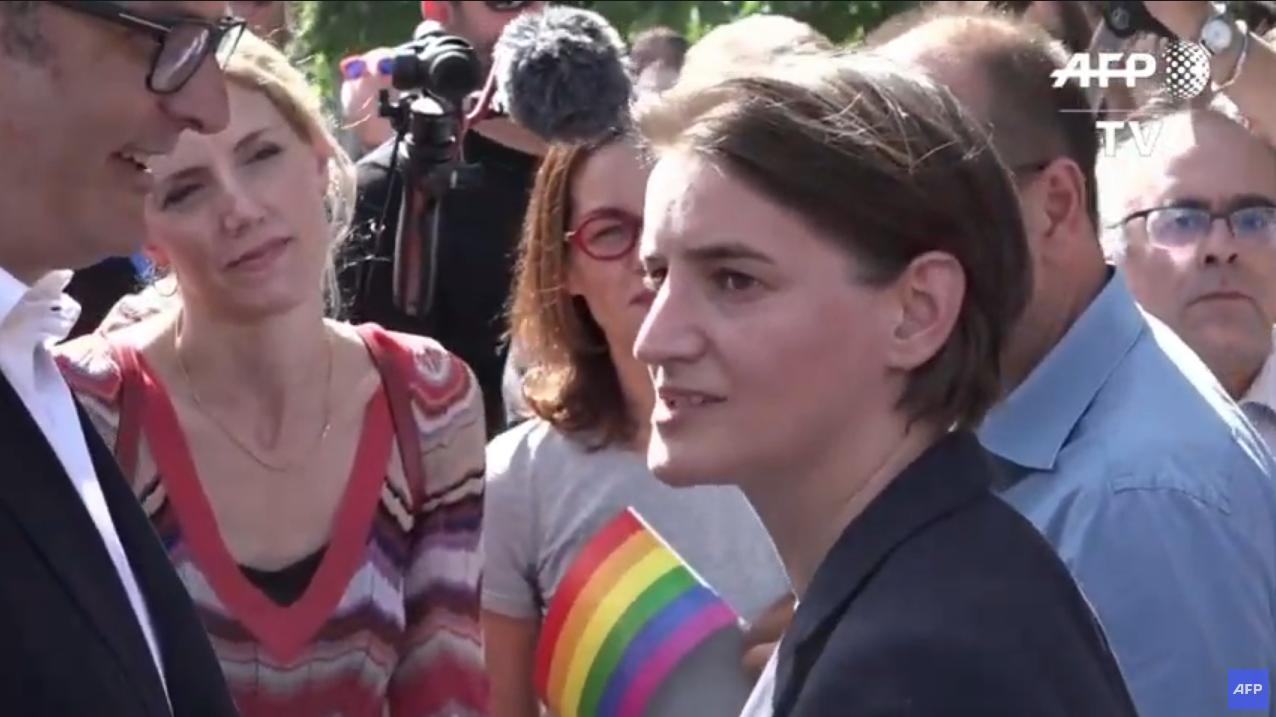
Serbian Prime Minister Ana Brnabić has stepped down after seven years in power, in a reshuffle of President Alexander Vučić’s government. Brnabić will take on the role of speaker of Parliament, while Vučić has named his ally Miloš Vučević as her successor.
Brnabić became the first woman and the first lesbian to hold the office of prime minister of Serbia, or to be a leader of any Eastern European country, in 2017. She is also the longest-serving person to have held the office.
She is still the most prominent LGBTQ person in the conservative, Eastern Orthodox country.
During her time in office, her status as a lesbian drew very little notice or criticism from Serbian society. She was the first leader of a Balkan country to attend a Pride march when she attended Belgrade Pride in 2017. She was frequently seen with her partner Milica Đurđić, who gave birth to their son in 2019.
However, despite her prominent title, it has been said that Brnabić wielded little actual power in the Serbian government, which is dominated by Vučić.
Brnabić has said that she didn’t want to be seen as the “gay prime minister” and that she prioritized policy goals other than LGBTQ rights in office. In turn, Serbia made little progress on expanding LGBTQ rights during her term.
The government introduced a civil unions bill in 2020 but shelved it months later amid backlash from legislators and a veto threat by Vučić. Beyond that, Brnabić’s government introduced a ban on discrimination against intersex people and removed regulations that barred LGBTQ people from accessing IVF or donating sperm.
During her time in office, Freedom House downgraded its classification of Serbia from “Free” to “Partly Free” due to Vučić’s increasingly authoritarian use of power and crackdowns on local media.
The government shuffle comes after December elections that were widely disputed as being rigged to favor the government. Last year, Serbia was rocked by months of nationwide protests against the government in the wake of rising gun violence, which a new opposition bloc had hoped would lead to gains in Parliament. Instead, the government won a majority.
JAPAN
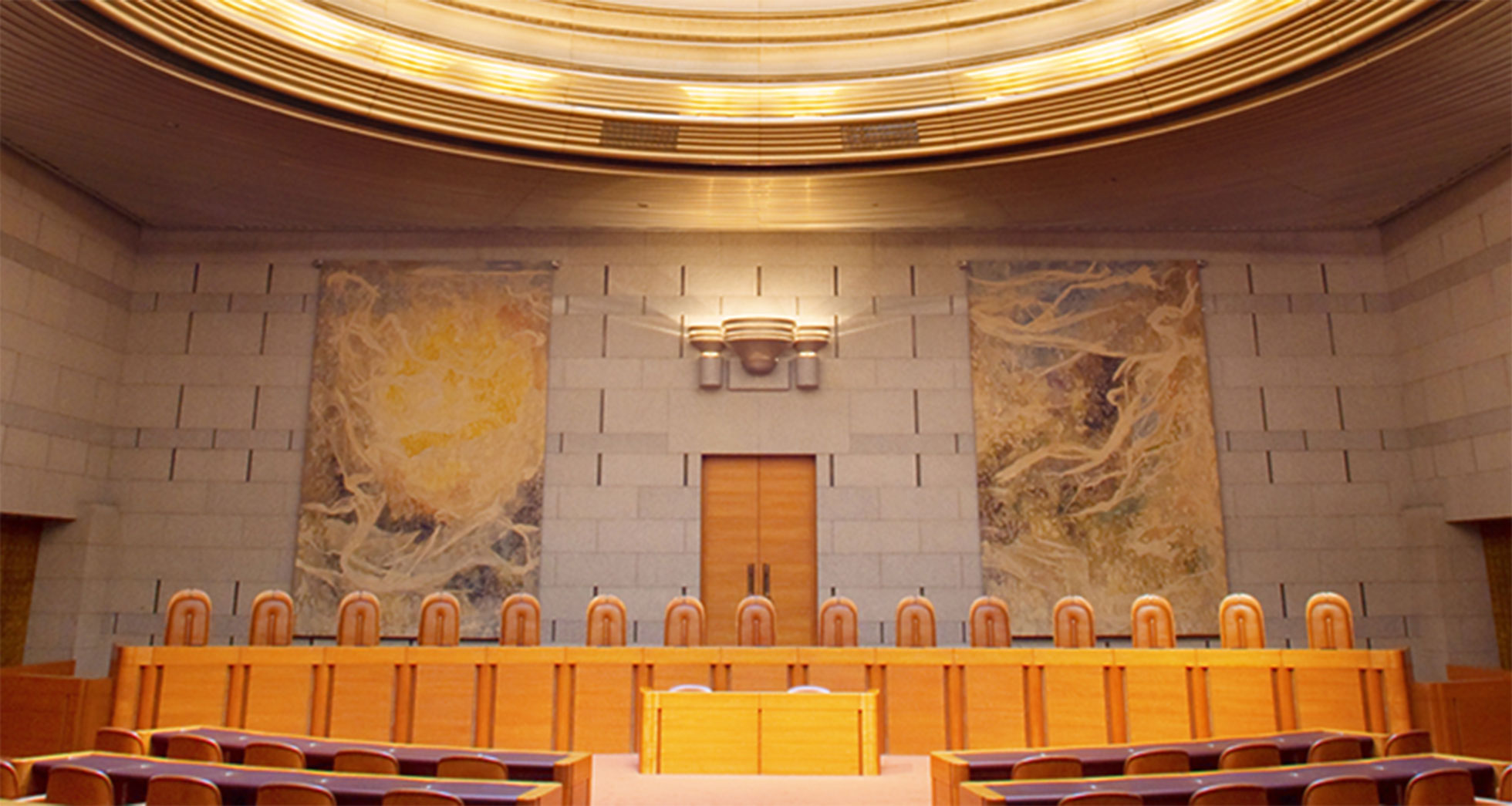
The legal battle to achieve same-sex marriage in Japan reached a new milestone, as the couples involved in a court case in Sapporo announced plans to appeal their loss to the Supreme Court, and in a separate case, the Supreme Court ruled that same-sex couples must get access to a crime victims benefit on an equal basis with married couples.
Same-sex couples have been waging a multi-front fight for same-sex marriage through the courts in Japan, given the national government’s long-standing opposition to addressing LGBTQ rights.
In March, the Sapporo High Court delivered the first appellate-level ruling on same-sex marriage, finding that the government’s refusal to allow same-sex marriage created a “state of unconstitutionality” because it discriminated against same-sex couples, but it otherwise ordered no compensation or remedy for the affected couples.
The couples have now announced they plan to appeal the decision to the Supreme Court.
One of the plaintiffs, Eri Nakaya, said at a press conference that the legal fight was essential for queer Japanese couples.
“If we back out now, legal recognition will not be achieved in the foreseeable future. I hope the Supreme Court will also declare (the same-sex marriage ban) unconstitutional,” he said.
Before the Supreme Court weighs in, more appellate court decisions are likely. District courts in Nagoya, Fukuoka and two courts in Tokyo have ruled similarly to the Sapporo court, while a district court in Osaka has upheld the ban on same-sex marriage.
But the Supreme Court may have tipped its hand in a ruling last week, which found that same-sex couples must be granted access to a benefit provided to victims of crime on the same basis as married heterosexual couples. The court came to that conclusion by reasoning that the purpose of the benefit — to help people recover after a crime — does not change depending on the gender of the victim or their partner.
While the ruling is limited to this one specific benefit, it appears likely that the same reasoning that led the court to this conclusion ought to be applicable to the constellation of benefits that are associated with marriage. Commentators have said that the same logic should apply to pensions, health insurance and family leave.
In the background of these decisions, local governments have increasingly come to recognize same-sex couples and families through legally non-binding “partnership certificates,” which are available or soon to be available in 29 of Japan’s 47 prefectures, as well as more than 400 municipalities.
Companies are also increasingly offering benefits to employees’ same-sex partners, including most recently Disney, which announced that it would provide benefits to same-sex partners of employees at Tokyo Disneyland last week.
NEW ZEALAND

In what Auckland police are treating as a hate crime, video captured three people painting over the New Zealand city’s Pride crosswalk with white paint, the latest in a brewing war over the LGBTQ Pride symbols being waged by Christian extremists in the South Pacific country.
A video of the vandals was posted to the TikTok account @aucklandcitynight00.
Auckland police say that the rainbow crosswalk on Karangahape Road in the heart of the city’s gay nightlife district was vandalized around 4 a.m. local time on March 27. Video shows three people in hooded sweatshirts and balaclavas stopping traffic to pour white paint on the road and cover the crosswalk with long paint rollers.
The vandals left the scene in a van that had its registration plates removed but police say they were able to trace the distinctively painted van’s owner and executed a search warrant on a property linked to the owner. No arrests have yet been made.
Much of the white paint had washed away due to rain and traffic, but the crosswalk still showed damage late in the day.
It was the second Pride crosswalk to be vandalized last week after a crosswalk in Gisborne, about 300 miles southwest of Auckland, was vandalized Monday morning.
The rainbow crosswalk on Gisborne’s main street had been painted over by anti-LGBTQ protesters who were upset that the local library was hosting a drag queen story hour. The next day, protesters and counter-protesters turned up at the library’s storytelling event. Then on Wednesday night, three people once again tried to paint over Gisborne’s restored rainbow crosswalk and were arrested by police who were lying in wait.
Three people have been accused of vandalism — two men aged 46 and 36, and a woman aged 45. A fourth suspect fled the scene, and police are still searching for him.
The Gisborne protesters were affiliated with the extremist Divinity Church, a Christian cult led by Brian Tamaki with around 1,700 members, according to the latest New Zealand Census. Tamaki preaches a far-right political ideology alongside anti-LGBTQ messages.
The threats have already led to drag queen story hours to be cancelled in the cities of Rotorua and Hastings, about 150 and 300 miles south of Auckland respectively. Librarians in both cities said the cancellations were made due to security concerns after the Divinity Church spread threats and misinformation about the events on social media.
He has said he intends for his church to continue protesting against town councils and libraries that host LGBTQ events and plans to continue vandalizing rainbow crosswalks, although he has denied any involvement in the Auckland crosswalk vandalism.
Tamaki has previously blamed the 2011 Christchurch earthquake on homosexuality.
AUSTRALIA
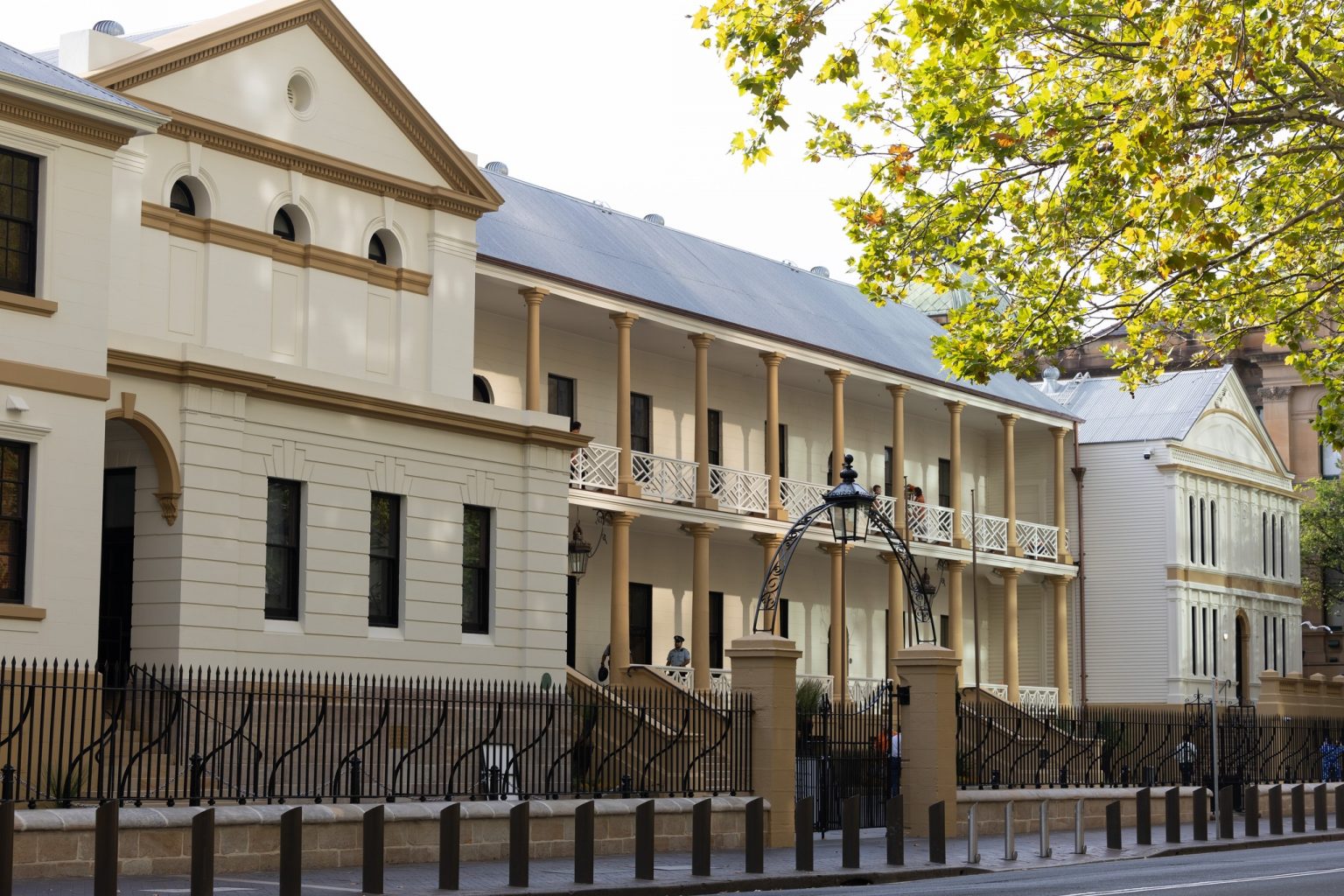
Making good on a campaign promise, New South Wales’ Parliament passed a law banning conversion therapy, making it the fourth Australian state or territory to ban the discredited practice that seeks to change people’s sexual orientation or gender identity.
The ban takes effect in one year and imposes a maximum penalty of up to five years imprisonment for any person that delivers conversion therapy that causes significant harm. The law also includes a civil complaints scheme.
New South Wales joins Queensland, Victory and the Australian Capital Territory in banning the practice. The governments of Tasmania and Western Australia have also proposed to ban conversion therapy.
“Conversion therapy proceeds on the basis that people in the LGBTQ+ community are broken, they need fixing,” says New South Wales Attorney General Michael Daley. “But we like them just the way they are.”
Worldwide, conversion therapy has been banned in 13 countries: Belgium, Canada, Cyprus, Ecuador, France, Germany, Greece, Iceland, Malta, New Zealand, Spain, Portugal and Norway. A bill to ban the practice nationwide in Mexico is awaiting a final vote in the nation’s Senate after it passed through the Chamber of Deputies last week
United Kingdom
UK Supreme Court rules legal definition of woman limited to ‘biological women’
Advocacy groups say decision is serious setback for transgender rights
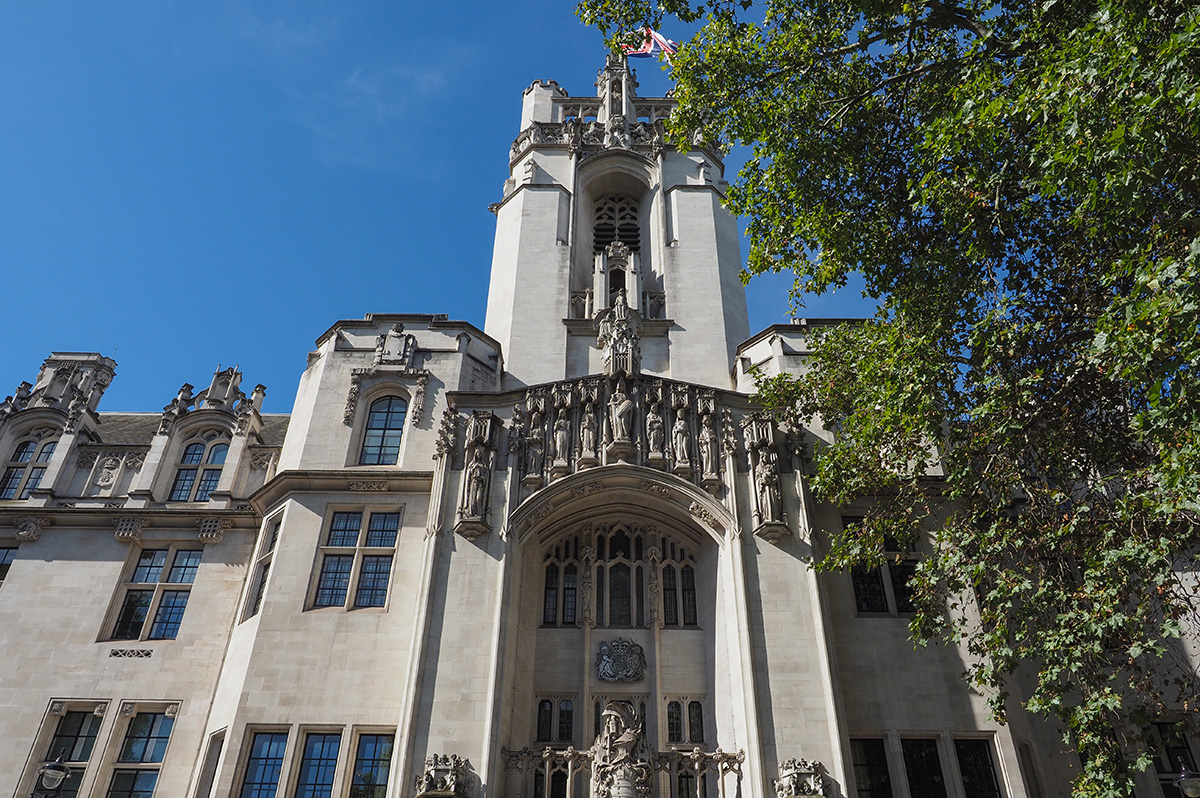
The British Supreme Court on Wednesday ruled the legal definition of a woman is limited to “biological women” and does not include transgender women.
The Equality Act that bans discrimination based on sexual orientation and gender identity took effect in 2010.
Scottish MPs in 2018 passed a bill that sought to increase the number of women on government boards. The Supreme Court ruling notes For Women Scotland — a “feminist voluntary organization which campaigns to strengthen women’s rights and children’s rights in Scotland” — challenged the Scottish government’s decision to include trans women with a Gender Recognition Certificate in its definition of women when it implemented the quota.
Stonewall U.K., a British advocacy group, notes a Gender Recognition Certificate is “a document that allows some trans men and trans women to have the right gender on their birth certificate.”
“We conclude that the guidance issued by the Scottish government is incorrect,” reads the Supreme Court ruling. “A person with a GRC (Gender Recognition Certificate) in the female gender does not come within the definition of ‘woman’ for the purposes of sex discrimination in section 11 of the EA (Equality Act) 2010. That in turn means that the definition of ‘woman’ in section 2 of the 2018 Act, which Scottish ministers accept must bear the same meaning as the term ‘woman’ in section 11 and section 212 of the EA 2010, is limited to biological women and does not include trans women with a GRC.”
The 88-page ruling says trans people “are protected by the indirect discrimination provisions” of the Equality Act, regardless of whether they have a Gender Recognition Certificate.
“Transgender people are also protected from indirect discrimination where they are put at a particular disadvantage which they share with members of their biological sex,” it adds.
Susan Smith, co-founder of For Women Scotland, praised the decision.
“Today the judges have said what we always believed to be the case, that women are protected by their biological sex,” she said, according to the BBC. “Sex is real and women can now feel safe that services and spaces designated for women are for women and we are enormously grateful to the Supreme Court for this ruling.”
Author J.K. Rowling on X said it “took three extraordinary, tenacious Scottish women with an army behind them to get this case heard by the Supreme Court.”
“In winning, they’ve protected the rights of women and girls across the UK,” she added.
It took three extraordinary, tenacious Scottish women with an army behind them to get this case heard by the Supreme Court and, in winning, they’ve protected the rights of women and girls across the UK. @ForWomenScot, I’m so proud to know you 🏴💜🏴💚🏴🤍🏴 https://t.co/JEvcScVVGS
— J.K. Rowling (@jk_rowling) April 16, 2025
Advocacy groups in Scotland and across the U.K. said the ruling is a serious setback for trans rights.
“We are really shocked by today’s Supreme Court decision — which reverses 20 years of understanding on how the law recognizes trans men and women with Gender Recognition Certificates,” said Scottish Trans and the Equality Network in a statement posted to Instagram. “The judgment seems to have totally missed what matters to trans people — that we are able to live our lives, and be recognized, in line with who we truly are.”
Consortium, a network of more than 700 LGBTQ and intersex rights groups from across the U.K., in their own statement said it is “deeply concerned at the widespread, harmful implications of today’s Supreme Court ruling.”
“As LGBT+ organizations across the country, we stand in solidarity with trans, intersex and nonbinary folk as we navigate from here,” said Consortium.
The Supreme Court said its decision can be appealed.
El Salvador
Gay Venezuelan makeup artist remains in El Salvador mega prison
Former police officer said Andry Hernández Romero was gang member because of tattoos

A new investigation points to a discredited, former police officer who played a “key role” in the wrongful deportation of Andry Hernández Romero, a gay asylum seeker and makeup artist who was sent to a maximum security mega prison in El Salvador under Trump’s Alien Enemies Act.
USA Today found in a recent investigation that the former Milwaukee police officer who filed the report about Hernández, citing his tattoos as the reason for the gang affiliation, has a long history of credibility and disciplinary issues in his former police officer position.
The private prison employee who previously worked as a police officer until he was fired for driving into a house while intoxicated — among other alcohol-related incidents — “helped seal the fate” of Hernández.
The investigation by USA Today found that the former police officer accused Hernández of being a part of the Tren de Aragua gang because of his two crown tattoos with the words “mom,” and “dad,” which are now being identified as Venezuelan gang-related symbols.
Since then, his story has made headlines across the nation because Hernández has no criminal record and is legally seeking asylum in the U.S. due to credible threats of violence against him in Venezuela because of LGBTQ persecution.
He was targeted shortly after Trump invoked the Alien Enemies Act of 1798, which is a proclamation for all law enforcement officials to “apprehend, restrain, secure, and remove every Alien Enemy described in section 1 of [the] proclamation.”
Charles Cross, Jr., the former police officer, signed the report which wrongfully identified Hernández as a gang member. Cross was fired in 2012 after many incidents relating to his credibility and how it was affecting the credibility of the department to testify in court.
He had already been under investigation previously for claiming overtime pay that he never earned. In 2007, he had also faced criminal charges for damage to property, according to court records.
In March, the Washington Blade spoke with the Immigrant Defenders Law Center Litigation and Advocacy Director Alvaro M. Huerta regarding the case and stated that “officials with U.S. Immigration and Customs Enforcement and U.S. Customs and Border Protection alleged his organization’s client was a member of Tren de Aragua, a Venezuela-based gang, because of his tattoos and no other information.”
Hernández came to the U.S. last year in search of asylum and now makes up one of 238 Venezuelan immigrants who were deported from the U.S. to El Salvador, Honduras and Venezuela. Many of those being deported are being sent to the Center for Terrorism Confinement, a maximum-security mega prison in El Salvador, which has been accused of human rights violations.
According to the investigation, the Department of Homeland Security “wouldn’t offer further details on the case, or the process in general, but reiterated that the department uses more than just tattoos to determine gang allegiance.”
His story is now being looked at as a cautionary tale of the lack of due process of law the U.S. government is taking, as the Department of Homeland Security and Immigration and Customs Enforcement ramp up deportations across the nation.
Organizations like the Human Rights Campaign are now calling for Secretary of State Marco Rubio and Secretary of Homeland Security Kristi Noem to cease wrongful deportations and return Hernández home. The petition also urges the U.S. government to afford all Americans, forging nationals and asylum seekers residing in the U.S., due process of law as required by the Constitution.
Argentina
Gay, nonbinary parent fights for family in Argentina’s courts
Leonardo Hatanaka alleges they were fired after requesting paternity leave

An unprecedented case could set an important legal precedent for the rights of labor rights for LGBTQ families in Latin America.
Leonardo Hatanaka, a Brazilian pharmaceutical professional, expects an imminent ruling from the Superior Court of Justice in the Autonomous City of Buenos Aires in a case that alleges discriminatory dismissal based on sexual orientation, gender identity, and xenophobia after their son Matteo’s birth in Argentina via “solidarity gestation.” Human rights organizations and international agencies have followed the case closely.
Genzyme de Argentina S.A. and Sanofi in 2023 fired Hatanaka weeks after they notified them of their son’s paternity and requested 180-day parental leave.
“Matteo’s birth was the realization of a dream and the right to form a family with love, dignity and equality, even if that means having to fight every day for our family to be recognized as such,” Hatanaka told the Washington Blade in an exclusive interview.
The National Institute Against Discrimination, Xenophobia and Racism, a government agency known by the acronym INADI that President Javier Milei’s administration has shut down, in November 2023 said Hatanka’s termination was motivated by discrimination based on sexual orientation and gender identity.
(Milei took office in December 2023.)
The General Directorate of Coexistence in Diversity in Buenos Aires’s government in 2024 said institutional xenophobia motivated the firing.
“I am a gay man, foreign, nonbinary, and I had requested to exercise my right to parental leave,” Hatanaka explained. “The company denied access to a basic right to care, which it does provide in other countries, and did not provide any medical coverage for our son, despite his legal registration with both parents’ names.”
Sanofi did not acknowledge responsibility, offer apologies or any kind of reparations, despite the two rulings.
“It was devastating. I was caring for a newborn, at a moment of enormous vulnerability, and the company chose just that moment to abandon us,” said Hatanaka.
The National Labor Court overturned an initial injunction that ordered Hatanaka’s reinstatement. Hatanaka appealed the decision to the Superior Court of Justice in the Autonomous City of Buenos Aires.
“I hope for justice; that the discrimination suffered is recognized, and that this ruling serves as a precedent for all diverse families and LGBTQ+ people who are seeing their rights violated,” said Hatanaka.
The Argentine LGBT Federation, SOS Homophobie in France, and Mothers of Resistance in Brazil are among the organizations that have expressed their support. The latest U.N. report on anti-LGBTQ discrimination also notes the case.
“Companies must go beyond marketing,” Hatanaka emphasized. “Real inclusion requires concrete actions, consistency, and respect for their own policies.”
Hatanaka stressed that “there are instruments such as the UN Guiding Principles on Business and Human Rights. It is time for them to comply with them.” The lawsuit has also become a symbol of the struggle for equality and protection of families with parents who are the same sex.
“I feel I represent many LGBTQ+ families who live in fear of losing everything by exercising their rights,” said Hatanaka. “LGBTQ+ parenting is legitimate, real and deserves protection. No family should be punished for existing.”
-

 District of Columbia2 days ago
District of Columbia2 days agoReenactment of 1965 gay rights protest at White House set for April 17
-

 Hungary2 days ago
Hungary2 days agoHungarian MPs amend constitution to ban public LGBTQ events
-

 Maryland2 days ago
Maryland2 days agoFreeState Justice: Transgender activist ‘hijacked’ Moore’s Transgender Day of Visibility event
-

 Real Estate3 days ago
Real Estate3 days agoNavigating DMV real estate market during political unrest



